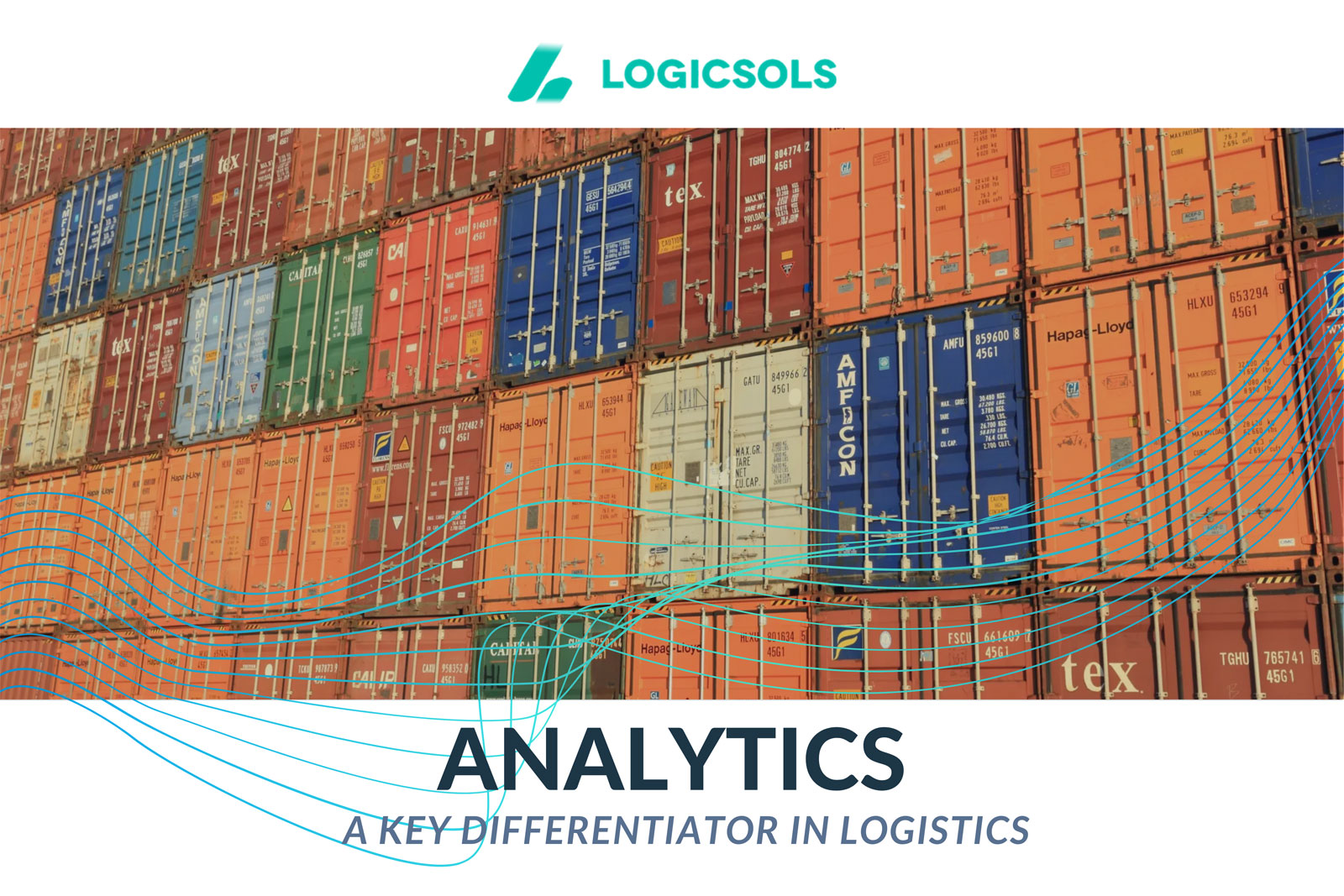Analytics: A Key Differentiator in Logistics

The logistics industry is data rich. Through millions of transactions & shipments happening every day, the industry creates billions of data points. This data richness presents a tremendous opportunity for logistics companies to leverage and optimize their operations. For the longest time inability to consolidate information efficiently resulted in only marginal and local optimizations. A large effort would have been required to digitize the information by extracting it from emails and documents and then use it to make effective changes at scale. But in more recent times technological advances through big data and AI are creating a big opportunity to ease the pain of data collection and also leveraging it to find large scale efficiencies in the value chain.
In a recent survey of 3PLs and shippers, nearly all 3PLs (98%) said improved, data-driven decision-making is essential to the future success of supply chain activities and processes, 93% of shippers agreed. Both groups—86% of 3PLs and 81 percent of shippers—said the effective use of massive data will become a core competency of their supply chain organizations.
Here are a few use cases where analytics can help in the logistics industry
- Freight Financials Analytics: Organizations have limited & less dynamic visibility on how their spending is across multiple modes of transportation. For willing organizations, the data collections on logistics spend comes with huge resource investment. By design, air freight is always more expensive than sea or road transportation. Without visibility on where and how the organization is spending, it ends up continuing the existing practices which results in reduced profitability.
- With in-depth dynamic knowledge (such as total transportation spend, customs clearance, spend by modes of transportation) on where a company is spending the most, data-driven decisions can help with planning cycles and reduce overall transportation costs downstream.
- Supply Chain Visibility: Not knowing where cargo is at any given point in transit, limits customers' ability to plan and take actions that can help reduce their overall cost. A simple example is planning of resources for project cargo, poor shipment visibility and no notification on when a shipment may arrive at the port of destination may result in weeks of unplanned resource cost.
- With live tracking across various transportation modes, customers can plan efficiently and achieve greater efficiencies. Analytics around routes & cycles with automated alerts at the right time can be of high value to customers. Reduced overall cycles through routing analytics & visibility can help businesses reduce inventory cost and have better cash flow.
Logicsols solution provides an easy to use cloud application enabling customers to complete their entire logistics transaction from RFQ – Final destination in three clicks. Our AI powered application captures data at multiple nodes of the logistics value chain creating value for its customers.
